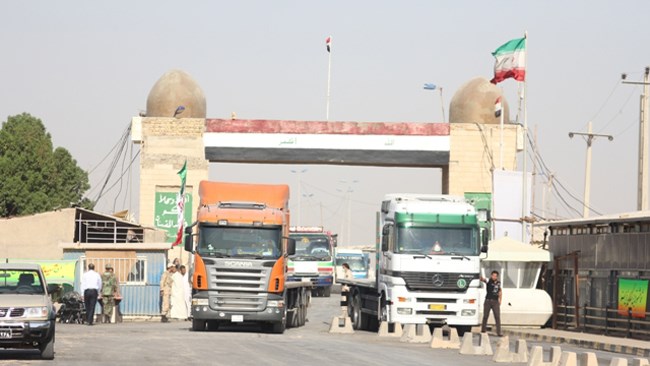Import and export in general is very complicated and difficult. This complexity is compounded by border changes, language differences, and regulatory directives from other countries, especially countries like Iraq that we don’t know enough about. Therefore, to clearance from Iraq, we need the Iraqi customs clearance. If the trader or producer uses a person who is not aware of the customs laws of this country, he may face problems at the customs and his goods will be returned to him. It should be noted that clearance of goods in Iraqi customs requires sufficient knowledge of up-to-date laws and regulations; Because due to political, economic conditions and sanctions, the laws and regulations of these countries are constantly changing.

Trade relations between Iran and Iraq
Trade between Iran and Iraq is one of the most important economic relations in the Middle East region. These two countries are geographically close to each other and the historical and cultural connections between them have been there for several centuries, which has made trade between the two countries always vital.
Iraq is known as one of the important export markets for Iran, especially in fields such as oil and gas, agricultural products, food, industrial and construction products and other goods needed by Iraq. Therefore, exporting to Iraq is very important for Iranian businessmen.
Some of the effective factors in the trade between Iran and Iraq include the existence of many common borders, road and rail connections, trade agreements between the governments of the two countries, the amount of demand and supply in the markets of the two countries, as well as agreements between the private sector of both countries. The development and strengthening of trade relations between Iran and Iraq can help the economic development of both countries and improve employment and social welfare through increasing trade exchanges.
The borders of Iran and Iraq for export
There are many borders for exporting goods to Iraq from Iran, including important borders such as Mehran and Dehlran border in Ilam, Shalamche border in Khuzestan, Bashmaq border in Marivan, Baneh border in Kurdistan, Khosravi border in Urmia, Parviz Khan border in Qasr Shirin. , Tamrchin border in Piranshahr and so on. For trade and commerce and exporting goods from Iran to Iraq, you can think about investing in exporting to Iraqi Kurdistan or exporting to the Iraqi border market.
Iraqi customs
The lack of knowledge of Iranian producers and exporters about the customs laws of Iraq and Iran (both in the north and in the south) always leads to many problems and losses for them and Iranian and Iraqi clearance workers. Most of the Iranian exporters and manufacturers and companies who plan to export goods to Iraq for the first time, due to lack of familiarity with the Iraqi customs laws and especially the new laws that have been implemented in the past few years in the Iraqi customs, more than 80 to 90 percent of their exposure They get into Iraqi customs with problems, and often the cargo is returned from the border.
Due to these problems, all the chambers of commerce of Iran’s provinces have the responsibility to provide comprehensive information to their members, to be aware of the laws and regulations and problems, and to provide appropriate solutions in the field of trade and especially exports to Iraq. This action not only helps to reduce exporters’ losses, but also leads to an increase in exports and a positive balance in trade with Iraq and an increase in domestic production. Unfortunately, the notifications made by the chambers of commerce are insufficient and incomplete, and the main reason for this is the problems that Iranian producers and exporters are facing in Iraqi customs.
Laws of clearance of goods from Iraq
To clear goods from Iraqi customs, businessmen and lawyers should pay attention to some general rules, which include the following:
- Ensuring that the export of goods from Iran to Iraq is allowed.
- Checking the production date and expiration date of the product packaging.
- Ensuring the shelf life of the product on the packaging.
- Checking the absence of customs duties on goods in Iran.
- Ensuring the packaging of goods in accordance with the rules.
- Having product quality assessment documents in both countries.
- Match the type of writing description on the packaging with the laws of both countries.
- Ensuring that the import of goods to Iraq is permitted before entering the Iraqi customs.
- Having the necessary licenses to export and import goods to both countries.
- Having an inspection certificate of product compliance with relevant standards.
Services of Huber Tejarat Melal Company for the clearance of goods from Iraq
Huber Tejarat Melal Company is known as one of the leaders in this field in the market with expertise in the field of clearance of goods from Iraq . Huber Tejarat Melal has been recognized as one of the best in providing goods clearance services in Iraq by having an expert and experienced team. This company offers quality and reliable services to its customers by taking advantage of technical knowledge, complete knowledge of Iraqi customs laws and regulations, and mastery of clearance processes. As the main business partner of the customers, Huber Tejarat Melal Company adheres to the goal of providing fast, accurate and optimal services to facilitate the process of clearing goods from Iraq.